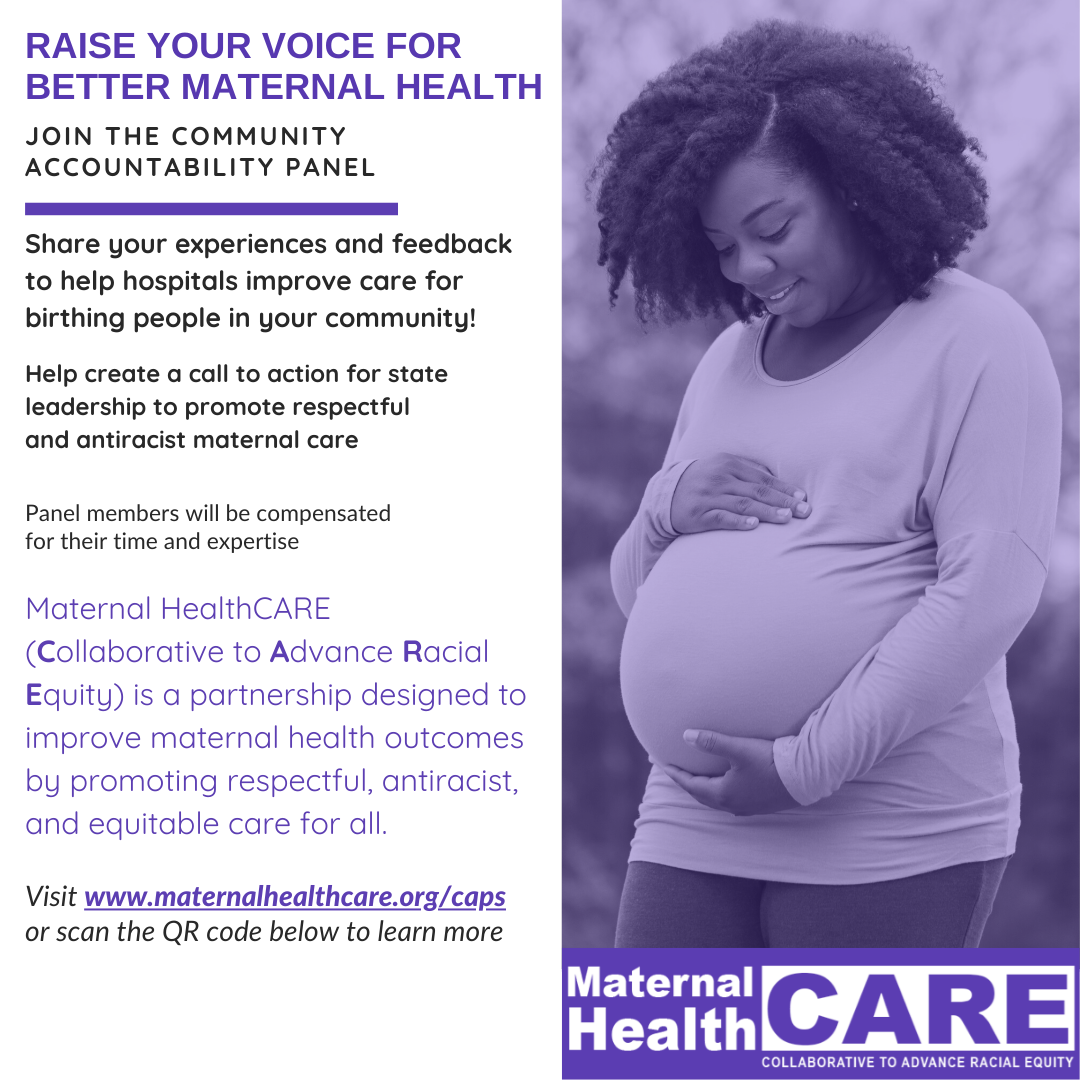
COMMUNITY VOICES
Sometimes the people that are most qualified to weigh in on what’s happening at their local birthing facility— parents, families, and community members— aren’t at the table. We believe that our pilot project will help create a mechanism for this that will ultimately lead to patients who feel satisfied with the care they receive.
Maternal HealthCARE is taking a novel approach to community engagement that generates honest feedback that is of value to hospitals and health systems.
Community Accountability Panels
An innovative way of engaging a Community Accountability Panel (CAP) in providing feedback directly to hospital teams will be implemented to solicit feedback on hospital progress on the QI initiative from community members.
The Community Accountability Panels will serve as a bridge between participating hospitals and their surrounding communities by learning more about Maternal HealthCARE hospitals’ efforts to improve outcomes and offering valuable insight into the perspectives of the populations served. CAPs include, but are not limited to, trusted community leaders, representatives from community-based organizations, birth workers, such as doulas and midwives, and current and/or former patients of participating hospitals.
Birthing families and community members can speak to the needs of their respective communities, and their expertise is required to help create lasting change in the experiences birthing people have in hospitals.
Purpose and Design
The Community Accountability Panels (CAPs) were designed based on input from the Black Maternal Health Stakeholder Group, who stressed the importance of community involvement in any efforts to improve patient outcomes.
The CAPs will meet quarterly during the Maternal HealthCARE pilot to review hospital data, along with additional consumer-generated data. Hospital data shared with the CAPs will be de-identified by hospital, presented as Hospital A, Hospital B, etc.
Recruitment and Panel Formation
Each panel will be formed based on participating hospitals and the communities they serve. Recruitment will target present and past patients of participating hospitals, family members of a birthing person, birth workers (doulas and midwives) and community members who are passionate about improving maternal and child health. The project team will recruit for the panels through community-based organizations and social media. Panels will consist of between ten and fifteen members.
Meeting Structure
The CAPs will meet quarterly, and the project team will present data. After a presentation of the quarterly data, panel members will be able to ask questions and share their feedback.
Meetings will also provide an opportunity for panel members to discuss challenges or concerns they are observing at the community level that impact the birthing person, and to share resources. After each meeting, the project team will compile the feedback into a report, which will be shared with participating hospitals. Hospitals are encouraged to share this report throughout their organization.
At the conclusion of the project, the project team will create a call-to-action report that summarizes key takeaways and feedback, which will be shared with the participating hospitals, state leadership, community-based organizations, and other groups invested in improving maternal and child health.
Panel Member Compensation
CAP members will be compensated for their time and expertise with a stipend for each meeting.

